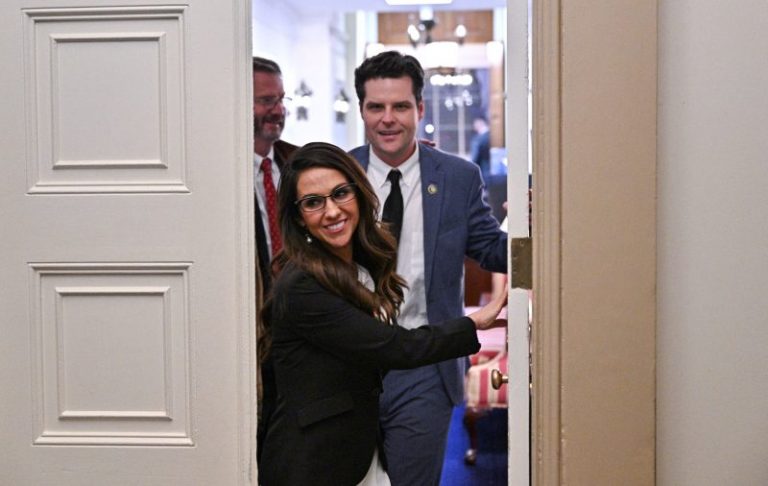Over the past several days, Republican Kevin McCarthy (Calif.), leader of the House GOP caucus, has been stymied in his efforts to be elected speaker of the House by a group of about 20 members of his party. Some of those opponents are new to the House, just elected and, like all of their peers, not yet even sworn in.
But most, 16 of them, have served previously. In the 117th Congress, they all had two characteristics in common: They held positions further to the right than most of the rest of their caucus, and even then they were much more likely to vote in opposition to McCarthy.
There were more than 950 votes in the Congress that ended Tuesday in which McCarthy voted “yea” or “nay.” On average, Republicans who still serve in the House voted with him 88.6 percent of the time — meaning that when he voted “yea,” so did they.
Among the 16 House veterans who voted for alternate speaker candidates during this week’s votes (excluding Republican Victoria Spartz (Ind.), who voted “present”), the average was only 74 percent. Among those who voted for McCarthy, it was 90 percent.
If we visualize the difference, the gap becomes more stark. Below, we compare agreement with McCarthy (on the vertical axis) with each elected officials’ DW-NOMINATE score, a measure of ideology. As ideology shifts to the right, frequency of agreeing with McCarthy plunges.
There are some anomalies worth pointing out. The first is Spartz, who is broadly in line with the rest of the Republican caucus on both ideology and support for McCarthy. She voted with him 92.5 percent of the time in the 117th Congress and is actually slightly more moderate than he is politically, according to the DW-NOMINATE analysis. Yet, on the three speaker votes conducted Wednesday, she voted “present” each time.
Then there are the right-wing elected officials who frequently disagreed with McCarthy in the preceding Congress — but stand with him now. Consider Clay Higgins (R-La.) relative to Matt Gaetz (R-Fla.). Gaetz voted with McCarthy 73 percent of the time; Higgins did 71 percent of the time. Both have DW-NOMINATE scores of about 0.61. But Higgins has stuck with McCarthy while Gaetz has led the charge against him.
In other words, previous opposition to McCarthy and more extreme politics are not, by themselves, predictive of opposition to the Republican leader. But nearly all of those who have expressed opposition to him reflect both of those patterns.
It’s useful to note that this opposition was not sporadic. It’s not that there were a few votes on which the right-wing fringe opposed McCarthy. On average, they voted against him on 247 of 951 votes. Those who’ve supported McCarthy only opposed him 93 times on average. (Spartz voted against him only 71 times.)
In other words, this was broad opposition, on a range of issues. At times, these votes were ostentatious, centered on hot-button issues that would yield attention from the right-wing media. Often, though, they were quieter expressions of disagreement.
This week, as the 118th Congress gets underway, we’ve seen a robust and very ostentatious expression of opposition to McCarthy. But given the record of the 117th Congress, we shouldn’t be that surprised.

